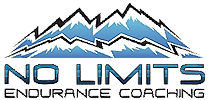For the past 5 years, plant-based diets have been on the rise in popularity. The 2018 Netflix documentary, The Game Changers, along with the COVID pandemic, have been key catalysts in this growth. Plant-based food sales were up by 27% in 2020, with many citing health reasons for making the switch to either eating a fully plant-based diet or making more plant-based meals.
Plant-based diets have shown positive effects on cardiovascular health, which is beneficial for endurance athletes. Specifically, these diets can improve plasma lipid concentrations, blood pressure, body weight, and blood glucose control, and, when combined with a healthy lifestyle, have been shown to reverse cardiovascular disease (Barnard et al 2019). Plant-based diets may also improve performance and recovery because of their positive effects on blood flow, body composition, antioxidant capacity, systemic inflammation, and glycogen storage (Barnard et al 2019). So, it’s no wonder endurance athletes are switching to a plant-based diet or increasing plant-based meals to gain an extra edge in health and performance.
Calories to Fuel Your Performance
Plant-based foods, such as vegetables, fruits, beans, and the like, are generally high in nutrients and fiber, and low in calories, which is great for weight loss and the general population. But as endurance athletes, it can be tricky to make sure you’re eating enough calories and the right balance of macronutrients to support your training and recovery. For more information on this topic, I’ve written previously about how to make sure you are getting enough calories overall, and also about what a typical day of eating might look like for an endurance athlete.
If you have trouble keeping weight on during the season or heavier training, you may need to eat a larger volume of calories, combine food groups each time you eat, and add extra healthy fats, such as olive oil, canola oil, avocado, nuts, and seeds, to your meals and snacks.
As a nutrition coach, I generally find that people do not eat enough to fuel their active lifestyle. This can harm our health and our performance. Always think about adding healthy foods before you take anything out!
Are you getting enough protein?
All vegetarians and vegans have been asked a time or 1000: “How do you get enough protein?” You can get enough protein with a plant-based diet; however, it does take a little more forethought with meal planning. Endurance sports break down the muscles and tendons, and protein is crucial for recovery and staying injury-free.
The Academy of Nutrition and Dietetics recommends athletes aim for 1.2-2 g of protein per kg of body weight. For example, a 130 lb female will need to consume between 70-118g of protein per day. Best sources of protein in a plant-based diet include soy (tofu, tempeh, edamame), beans, lentils, quinoa, hemp seeds, chia seeds, buckwheat, and spirulina.
Additionally, most vegetables have some amount of protein. While the concentration of protein in vegetables may not be as high, some have a surprisingly high content, such as green peas (8.5g/cup) and brussel sprouts (5.6 g/cup). Many vegetables will be in the range of 3-5g/serving.
Besides getting enough protein, we also need to make sure we’re getting in the proper amount of amino acids, the smaller building blocks of protein. Of the 20 different amino acids, 9 are essential, meaning we don’t produce them in the body and need to get them from food. Plant-based protein sources contain essential amino acids but rarely have all nine of them. To ensure you are getting these essential acids, eat a variety of foods to meet your energy demands. A varied, whole-food diet will ensure you get in all the required protein and amino acid requirements.
Vitamins and Minerals
Getting adequate vitamins and minerals is important for both general health and sport performance. Eating a variety of healthy foods with different types of legumes, seeds, nuts, vegetables, and grains should cover most of your vitamin requirements. If you’re consuming plant-based products like soy or oat milk, they are often enriched with vitamins and minerals. One exception is vitamin B12 since its main sources are animal products like meat, fish, and eggs. So, consider supplementing with a B12 vitamin.
Iron deficiencies are common in female athletes, and you are at a higher risk if you don’t eat animal products. Plant-based foods like whole grains, beans, and nuts all contain iron, but this type is harder to absorb than iron found in animal products. So, it’s important to keep track of iron levels when following a plant-based diet and to include iron-rich foods regularly. You can also combine foods rich in vitamin C with the iron-containing foods for better iron absorption.
Whether you’re already eating plant-based or plan to in the future, be sure to include a variety of foods in your diet to ensure proper nutrient and energy demands. Always eat enough to support your training and racing. And remember, food is meant to be enjoyed!
Want more help?
We offer nutrition coaching! This begins with a 10-week program, designed to help you dial in your needs for optimal performance and health. More information here!
References:
Barnard, N.D., Goldman, D.M., Loomis, J.F, Kahleova, H., Levin, S.M., Neabore, S., and Batts, T.C. 2019. Plan-based diets for cardiovascular safety and performance in endurance sports. Nutrients v. 11 (1).
WebMD. 2021. Plant-Based Diets Gain Steam. https://www.webmd.com/diet/news/20210914/plant-based-diets-gain-steam-major-companies-get-on-board

